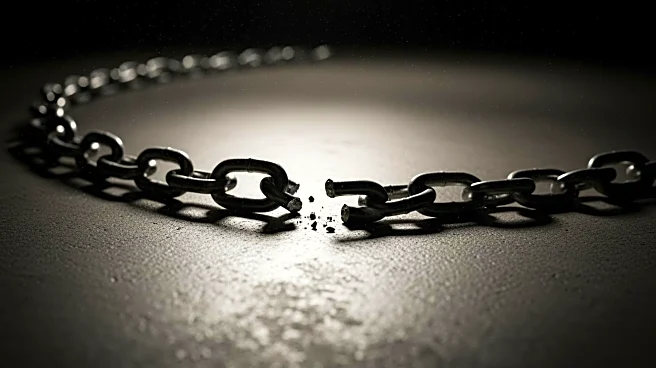What's Happening?
Democratic members of the House Oversight Committee have released emails purportedly from Jeffrey Epstein, claiming that President Trump was aware of Epstein's activities involving young girls. The emails,
which have been made public, suggest that Epstein had communicated details of his dealings to Trump. This revelation has sparked significant attention, as it involves high-profile figures and sensitive allegations. CBS News' Nikole Killion and Nancy Cordes have reported on the release, highlighting the potential implications for President Trump and those associated with Epstein.
Why It's Important?
The release of these emails could have substantial implications for President Trump, particularly in terms of public perception and political ramifications. If the allegations are substantiated, they may lead to increased scrutiny of Trump's past associations and actions. This development also underscores the ongoing investigations into Epstein's network and the broader implications for those involved. The situation may influence political discourse, as lawmakers and the public react to the allegations and consider their impact on governance and accountability.
What's Next?
The release of the emails is likely to prompt further investigations and discussions among lawmakers and legal experts. Stakeholders may call for additional transparency and accountability, potentially leading to hearings or inquiries. The situation could also affect President Trump's political standing, as opponents may use the allegations to challenge his credibility and leadership. As the story unfolds, it will be important to monitor reactions from key figures and institutions involved.
Beyond the Headlines
The ethical and legal dimensions of this case are significant, as they involve questions of accountability and justice for victims. The situation highlights the complexities of addressing allegations involving powerful individuals and the challenges of ensuring transparency and fairness in the legal process. Long-term, this case may influence public attitudes toward issues of power, privilege, and accountability.









